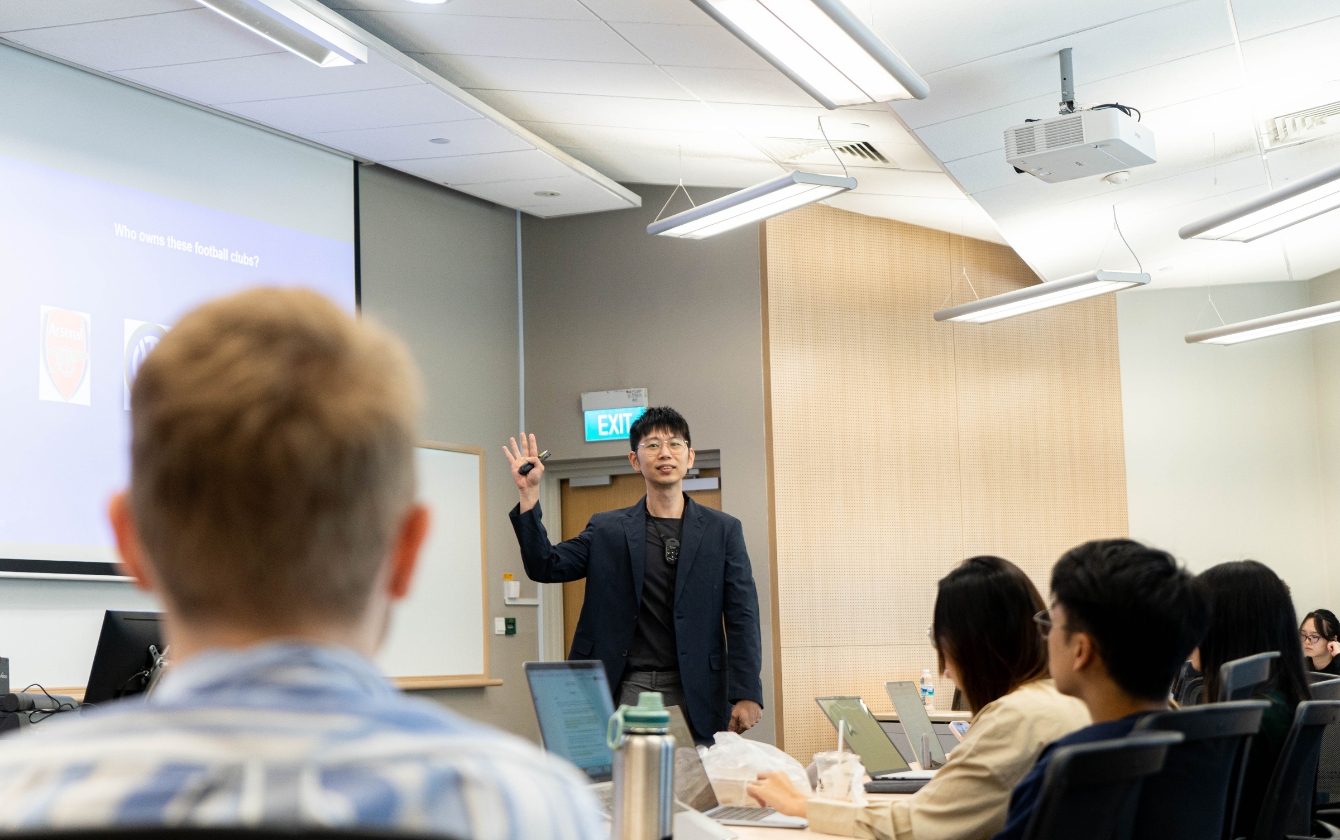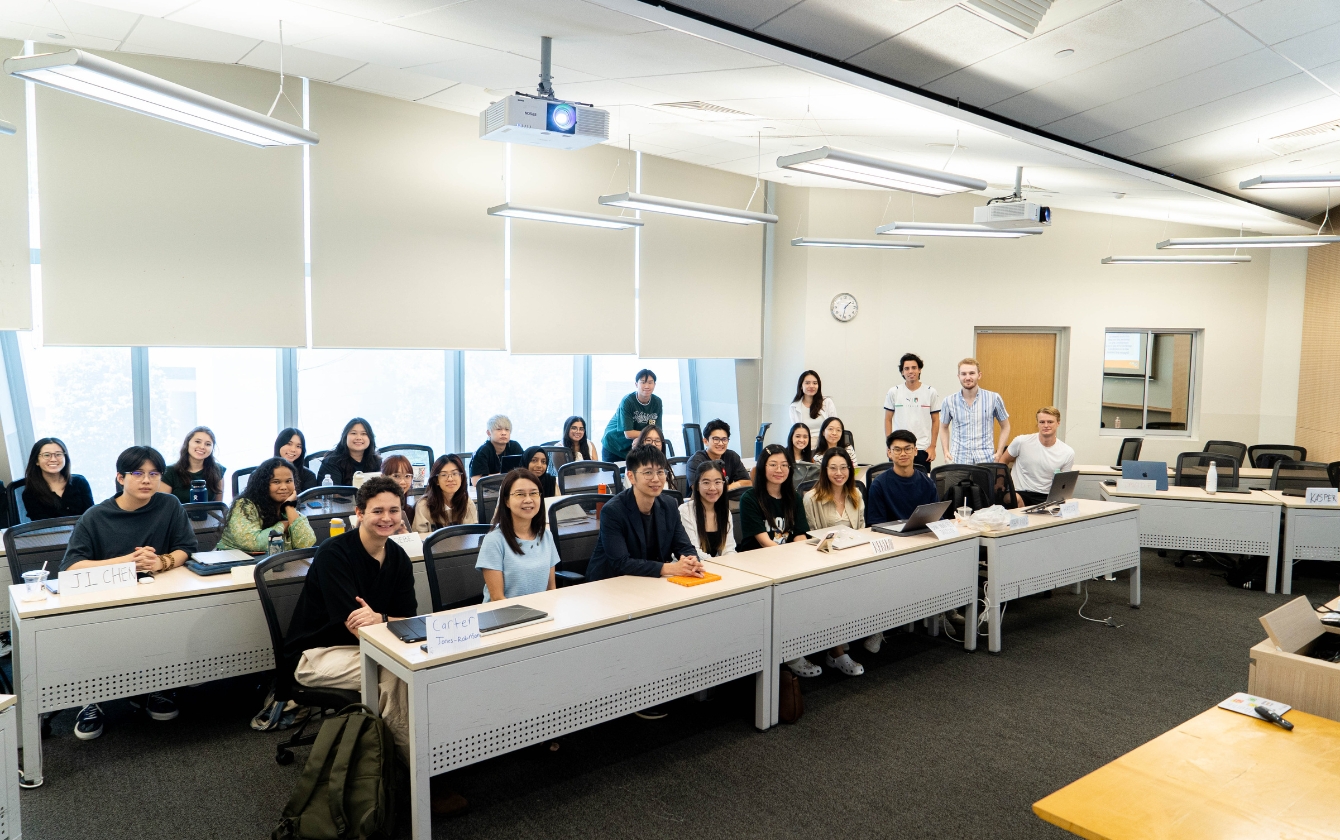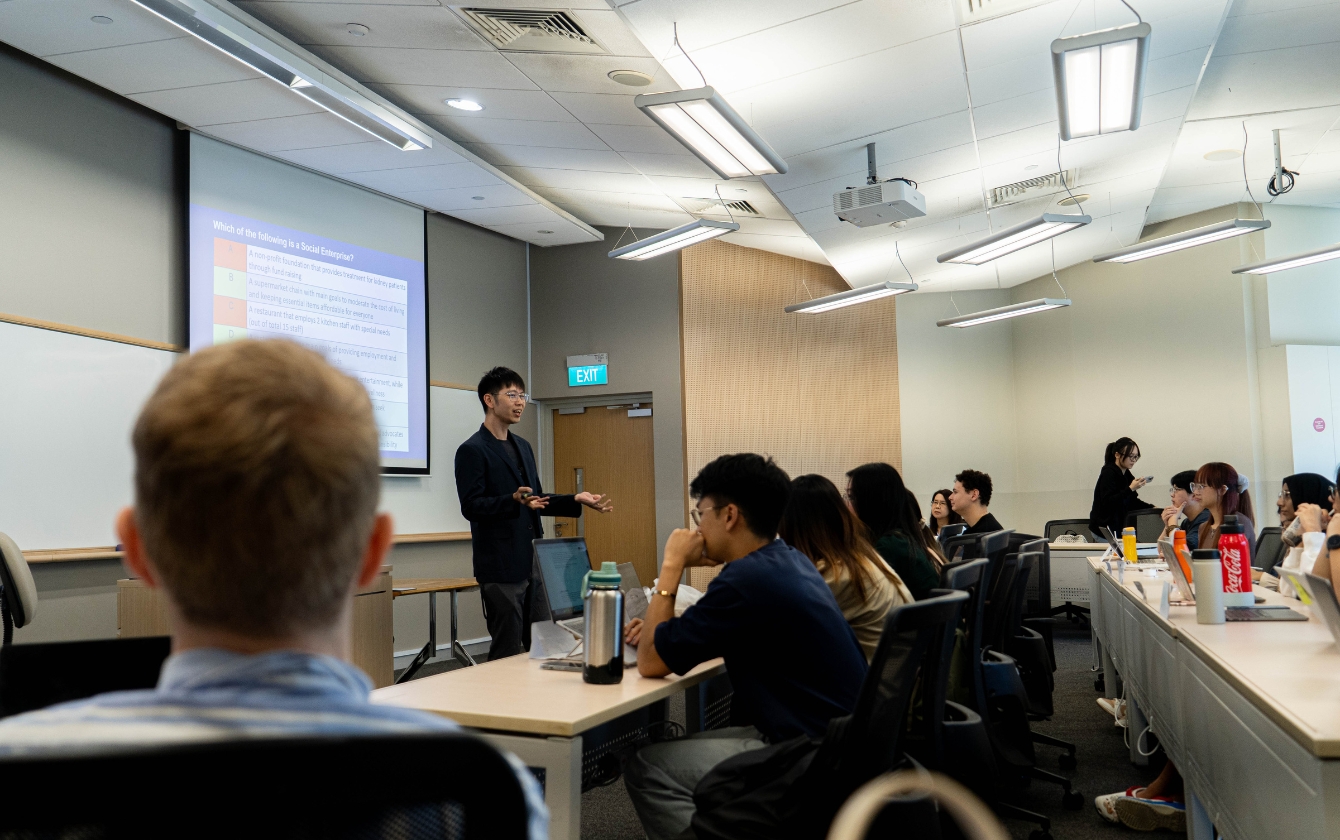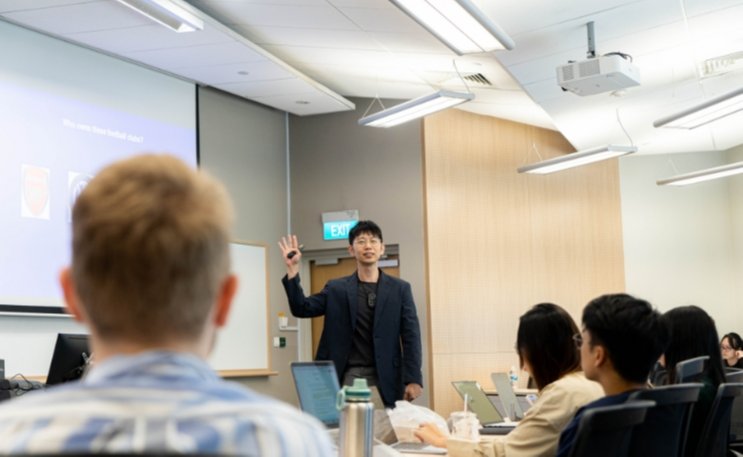
Between Arsenal FC, Chelsea FC and Barcelona FC, which football club is run under a co-op model? The answer, FC Barcelona, operates as a cooperative sporting association. This example was used by Mr Alex Shieh, Head of Governance & Stewardship at the Singapore National Co-operative Federation (SNCF), in his sharing with about 30 undergraduates at the National University of Singapore (NUS) on 18 September 2025.
The students were attending a Social Entrepreneurship class, where Mr Shieh introduced the co-operative movement and its continued relevance. He explained how co-operatives are unique enterprises that balance economic needs with social objectives while being owned and governed by their members.

In his session, Mr Shieh outlined the objectives of co-ops, the challenges of operating them, and the support SNCF provides, from start-up guidance to funding and capability-building. Case examples such as NTUC FairPrice and Runninghour Co-operative illustrated the diversity and impact of the sector.
Students also raised thoughtful questions. One asked if co-ops could ever mistreat suppliers or fail to compensate them fairly. Mr Shieh explained that while ethical sourcing and fair compensation are principles the movement promotes, lapses can still occur, underscoring the need for strong governance. Another question focused on tax rebates, where he clarified that smaller co-ops contribute a modest 5% of annual surplus to the Central Co-operative Fund and typically do not receive rebates, except in exceptional circumstances such as COVID-19. Students also wondered how co-ops stay competitive against profit-driven businesses. Mr Shieh pointed to strategies like offering member rebates, prioritising community needs, and absorbing price shocks, as NTUC FairPrice has done during crises.
By the end of the session, students left with a clearer picture of how co-ops work and why they remain relevant in addressing today’s social and economic challenges.
Words and Photos by Sng Ler Jun




